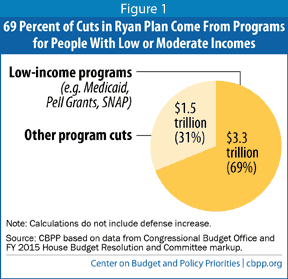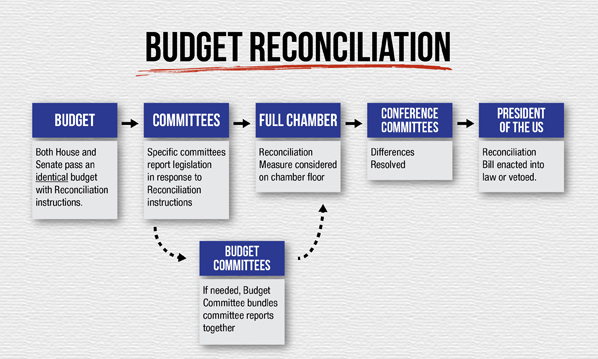March 2015 U.S. Poverty Action
Call Agriculture Aides about Protecting SNAP
In March and early April, Congress will be working on a FY 2016 Budget Resolution. The federal budget resolution is the blueprint Congress sets for itself outlining the priorities for next year’s budget. Unfortunately, we anticipate that both the House and Senate will propose dramatic changes to the Supplemental Nutrition Assistance Program (SNAP, formerly food stamps). SNAP is the first line of defense against hunger in America. Given the threats to SNAP in the budget process (see below), now is the time to weigh in with congressional offices about protecting SNAP. Having members of Congress speak with budget negotiators while they are drafting the new budget can have an impact on the final outcome.
Call the agriculture aide in your House and Senate offices. Ask them to urge their bosses to tell budget negotiators to stand up and protect SNAP in budget negotiations. Here are some talking points you can use in your conversations.
- Introduce yourself as a constituent who cares about poverty and also a RESULTS volunteer. Tell them you’d like to talk about hunger in America and the Supplemental Nutrition Assistance Program (SNAP, formerly food stamps).
- Inform the aide that in 2013, more than 1 in 5 children in the U.S. were at risk of going to bed hungry every night (21 percent). Studies show that children who are regularly hungry suffer from weakened immune systems, slowed and abnormal growth, and anemia (you can find local poverty data for your state or congressional district at www.talkpoverty.org/poverty).
- Remind them that SNAP has been critical in helping low-income families out of poverty. The U.S. Census reports that SNAP lifted 4.8 million people out of poverty in 2013. Most of the people who receive SNAP are children, the elderly, and people with disabilities.
- Explain that SNAP is a model of efficiency with 99 percent of benefits going to eligible households and fraud rate of only one percent.
- Share your concerns that, despite this success, some in Congress are looking again to make deep cuts to SNAP. This would force millions of Americans deeper into poverty.
- Urge your member of Congress speak with budget negotiators (Senate Chairmen Enzi Ranking Member Sanders/House Chairmen Price and Ranking Member Van Hollen) and urge them to strongly reject requests for additional cuts to programs within the jurisdiction of the Senate and House Agriculture Committees, because this could lead to cuts and detrimental changes to SNAP.
- Thank the aide for his/her time and ask when it would be convenient to follow up about your request.
Note: Find contact information for your members of Congress on the RESULTS Elected Officials page at http://capwiz.com/results/dbq/officials/. For additional tips on working with Congress and the media, check out our Activist Toolkit at https://results.org/skills_center/activist_toolkit/.
SNAP on the Chopping Block… Again
 Currently, over 46 million people — almost half of them children — receive SNAP benefits, and SNAP lifted almost 5 million people out of poverty in 2013 (US Census). SNAP has also been found to significantly reduce hunger and poor health in children. Despite its success, Just over one year ago, Congress passed, and the President signed into law, a massive bipartisan Farm Bill that included more than $8 billion in cuts to SNAP. Many Washington insiders are surprised that Congress would consider re-opening agriculture programs, including SNAP, to cuts so soon after the last Farm Bill.
Currently, over 46 million people — almost half of them children — receive SNAP benefits, and SNAP lifted almost 5 million people out of poverty in 2013 (US Census). SNAP has also been found to significantly reduce hunger and poor health in children. Despite its success, Just over one year ago, Congress passed, and the President signed into law, a massive bipartisan Farm Bill that included more than $8 billion in cuts to SNAP. Many Washington insiders are surprised that Congress would consider re-opening agriculture programs, including SNAP, to cuts so soon after the last Farm Bill.
We won’t know what will be included in the House and Senate budget proposals until mid-March. However, if the past few years are any indication, it will be bad for hungry families. In 2014, House leaders proposed $137 billion (18 percent) in cuts to SNAP, along with many other anti-poverty programs, as part of the so-called “Ryan Budget.” These changes would have forced millions of children and families off the program. As seen in the chart (right), nearly 70 percent of the cuts in last year’s Ryan Budget came from programs like SNAP that serve low-income Americans.
 In particular, RESULTS is concerned that Congress will pave the way for deep cuts to SNAP using “budget reconciliation,” which allows for major cuts and changes to programs to be fast-tracked in the budget process (in particular, reconciliation bills cannot be filibustered in the Senate). While the Congressional Budget Resolution cannot specifically mandate that cuts come from SNAP, Congress can assign cuts to the Agriculture Committees, which have jurisdiction over SNAP. Considering Republican leadership’s hostility toward SNAP the last few years, assigning cuts to these committees would all but guarantee cuts to SNAP. The best way to protect SNAP is to ensure that Congress does not assign cuts to Agriculture programs in the budget. Your voice is needed to make that happen!
In particular, RESULTS is concerned that Congress will pave the way for deep cuts to SNAP using “budget reconciliation,” which allows for major cuts and changes to programs to be fast-tracked in the budget process (in particular, reconciliation bills cannot be filibustered in the Senate). While the Congressional Budget Resolution cannot specifically mandate that cuts come from SNAP, Congress can assign cuts to the Agriculture Committees, which have jurisdiction over SNAP. Considering Republican leadership’s hostility toward SNAP the last few years, assigning cuts to these committees would all but guarantee cuts to SNAP. The best way to protect SNAP is to ensure that Congress does not assign cuts to Agriculture programs in the budget. Your voice is needed to make that happen!